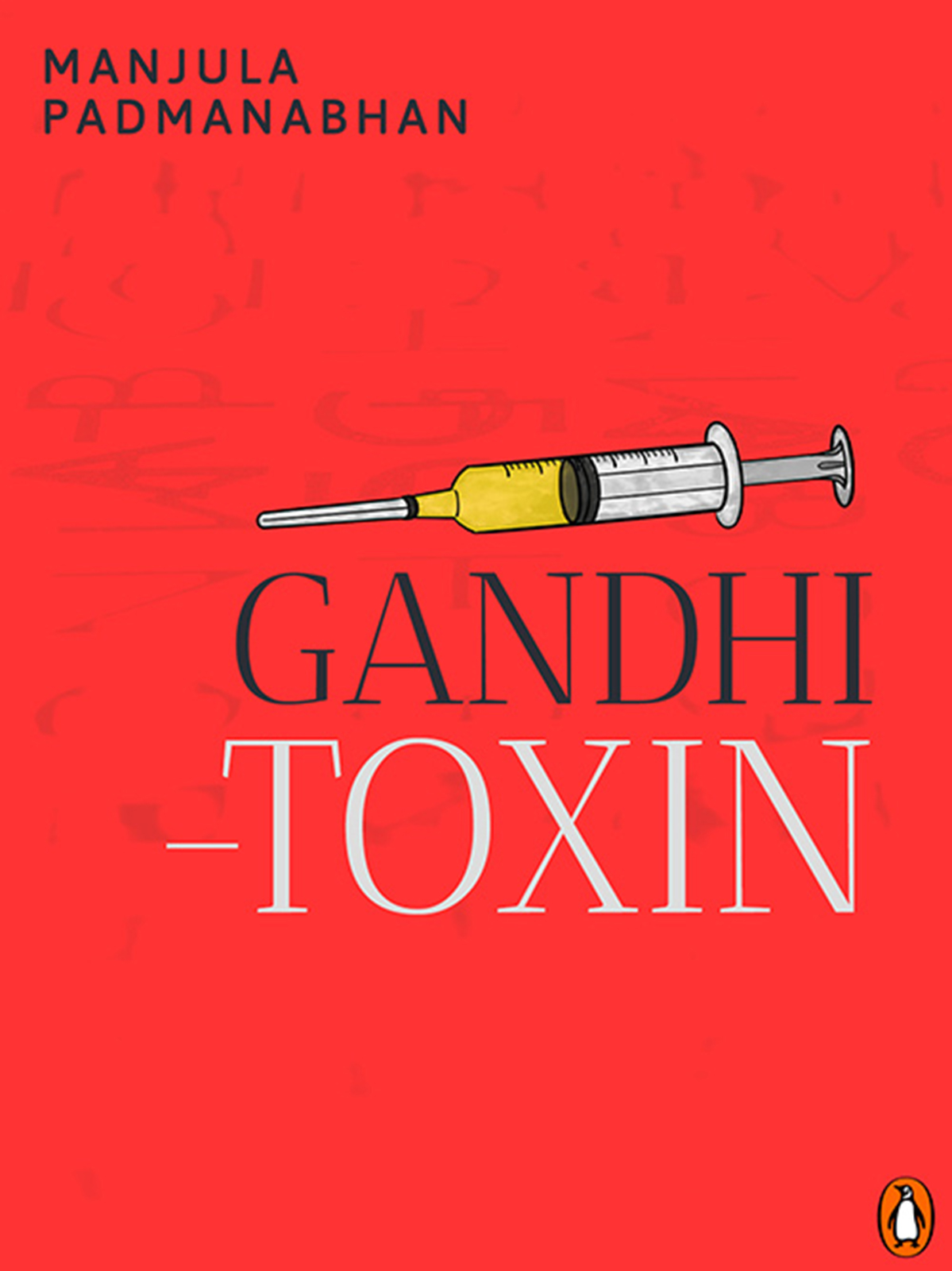
© 2020 Penguin India

Sitaram Desai, a researcher and the scion of third cousins from Mahatma Gandhi’s bloodline, has just managed to invent a toxin from a vial of ashes belonging to the greatest man the Indian subcontinent has ever seen. The Gandhi-toxin, when diffused through the blood, has the ability to disarm aggression vectors in mammalian brains. Of course, if mass-administered, it can cause catastrophic pacifism and widespread loss of competitive urge—a formidable weapon indeed.
Aidid and Isabella, Supreme Commanders at United Gene Heritage, are aware of the threats, which is why they launch a mass release of the toxin through specially engineered mosquitos that can even cross enemy lines. However, no one has ever managed to predict the long-term effects of genetic manipulation and it looks like the Supreme Commanders are in for a supreme surprise.
Science fiction often manages to look closely at present-day issues through a fairly made-up world. In Gandhi-toxin, Manjula Padmanabhan cleverly uses her literary prowess to build a dystopian—although not entirely unbelievable—near future to make a point about the world we live in today. Funny and incisive, this short read is for anyone who’s ever wondered about the future of our world.
Imprint: Penguin
Published: Jan/2018
Length : 15 Pages
MRP : ₹15.00
Imprint: Penguin Audio
Published:
ISBN:
Imprint: Penguin
Published: Jan/2018
ISBN: 9789387625587
Length : 15 Pages
MRP : ₹15.00
Sitaram Desai, a researcher and the scion of third cousins from Mahatma Gandhi’s bloodline, has just managed to invent a toxin from a vial of ashes belonging to the greatest man the Indian subcontinent has ever seen. The Gandhi-toxin, when diffused through the blood, has the ability to disarm aggression vectors in mammalian brains. Of course, if mass-administered, it can cause catastrophic pacifism and widespread loss of competitive urge—a formidable weapon indeed.
Aidid and Isabella, Supreme Commanders at United Gene Heritage, are aware of the threats, which is why they launch a mass release of the toxin through specially engineered mosquitos that can even cross enemy lines. However, no one has ever managed to predict the long-term effects of genetic manipulation and it looks like the Supreme Commanders are in for a supreme surprise.
Science fiction often manages to look closely at present-day issues through a fairly made-up world. In Gandhi-toxin, Manjula Padmanabhan cleverly uses her literary prowess to build a dystopian—although not entirely unbelievable—near future to make a point about the world we live in today. Funny and incisive, this short read is for anyone who’s ever wondered about the future of our world.
Manjula Padmanabhan (b. 1953), is a writer and artist living in New Delhi. Her books include Hot Death, Cold Soup (Kali for Women, 1996), Getting There (Picador India, 1999) and This is Suki! (Duckfoot Press, 2000). Harvest (Kali for Women, 1998 and subsequently in three separate international anthologies), her fifth play, won the 1997 Onassis Award for Theatre. She has illustrated twenty-two books for children including, most recently, her own first novel for children, Mouse Attack (Macmillan Children’s Books, UK, 2003; Picador India, 2004). Her comic strips appeared weekly in The Sunday Observer (Bombay, 1982-86) and daily in The Pioneer (New Delhi, 1991-97). Her most recent exhibition was of etchings and lithographs (London, December 2003).